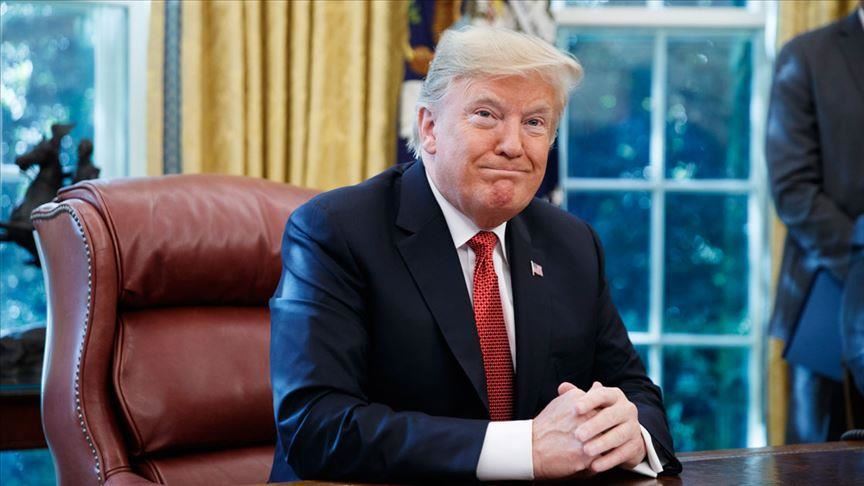Does Trump deal present new challenge to US-Jordan ties?
Amman's rejection of so-called ‘Deal of Century’ tests relations with Washington, experts say

AMMAN
The recently announced so-called "Deal of the Century" or “peace plan” for the Middle East poses a real test for bilateral relations between the U.S. and Jordan which have existed for many years. Washington considers Amman as one of its most important strategic allies in the region.
On Jan. 28, U.S. President Donald Trump announced his vision to end the Israel-Palestine conflict, which was officially rejected by Jordan.
The Arab kingdom's foreign minister, Ayman Safadi, had said that the Middle East solution should meet the legitimate rights of Palestinians -- the only way to achieve lasting peace and end one of the world's longest-running disputes.
Jordan, experts say, is in a difficult situation: it can neither endorse the deal which has termed Jerusalem as Israel's "undivided capital," nor can it disregard the U.S, its main supporter in terms of military and economic assistance. Any tension with Washington could cause an economic crisis which Amman would not be able to endure, given the country’s current circumstances.
Maintained ties
"Jordan has not and will never bargain over its position on the Palestinian cause," Mohammad al-Momani, the state's former minister of state for information affairs, told Anadolu Agency. "There is no doubt that the U.S. sees the kingdom as an important ally and Washington is the main supporter of Amman but that will not affect our attitudes towards our Arab and Islamic issues."
Asserting that the American plan is not supported by the international community, al-Momani said the way out to the conflict could only be achieved through a two-state solution and the establishment of an independent Palestinian state with East Jerusalem as its capital.
"I do not think that the U.S. will change its stance towards Jordan because it fully understands that our positions stem from the kingdom's keenness to achieve peace and to end any crisis that will affect the stability of the region in the future," he said.
Al-Momani believes that Trump and his administration should consider Jordan's main concern, i.e. King Abdullah II's trusteeship of Islamic and Christian holy sites in Jerusalem.
The former minister said that the U.S. will not sacrifice its ties with Jordan, which he described as “the gateway to security and peace in the region.”
Limited stagnancy
A Jordanian parliamentarian says the U.S. plan, which has little standing both on international and domestic fronts, will have limited influence on bilateral ties.
"There are historical relations between the kingdom and Washington. However, Trump's moves are neither acceptable globally nor domestically in the U.S.,” Raed al-Khazaleh, head of the Jordanian Parliament's Foreign Affairs Committee, told Anadolu Agency.
But the effect on mutual ties will be minor and limited to “few figures who were responsible for the deal," al-Khazaleh said, without naming any American official.
According to him, the U.S. realizes the importance of King Abdullah’s role in the region.
Jordan has no major alternative allies like the U.S., he said, stressing that “ties between the two countries will not be cut, but at the same time, Jordan will not approve the deal because it affects Jordan and the region.”
A challenge?
Bader al-Madi, a political science professor, told Anadolu Agency that the so-called "Deal of the Century" is a new challenge to U.S.-Jordanian relations. However, he ruled out the possibility of any major change in association between the two allies.
"The main challenge of this plan and its effects on Jordan can be understood through a set of fundamental issues which are refugees, Jerusalem and border issues, which pose a major concern for Jordan's domestic politics," he said.
"Jordan does not have options to refuse or face this plan if Israel and the U.S. decide to move forward in implementing it due to the strategic nature of relations between the two countries.
"These relations have become fundamental in the stability of the Jordanian political system, as the kingdom can only get along with this plan," he added.
The academic said that "Amman has been receiving economic, security and political assistance from the U.S. for a long time, and this support sustains a kind of stability that essential for the country."
He stressed that "Jordan does not have the capabilities to form a basic line of defense for itself against the Israeli and American intransigence."
*Writing by Mahmoud Barakat
Anadolu Agency website contains only a portion of the news stories offered to subscribers in the AA News Broadcasting System (HAS), and in summarized form. Please contact us for subscription options.







